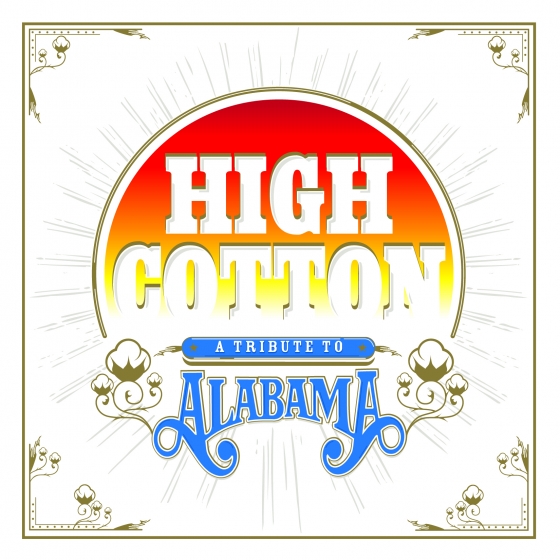
Videos by American Songwriter
Jason Isbell
Something More Than Free
(Southeastern/Thirty Tigers)
Rating: 4 stars out of 5
Jason Isbell is on a roll. There’s no better songwriter on the planet at this moment, no one operating with the same depth, eloquence, or feeling. He’s surrounded himself with musicians who can translate his material with flash or restraint, depending on what’s needed. And now he’s followed up one masterpiece of an album, 2013’s Southeastern, with a new one that is probably stronger top-to-bottom.
Ideally, Something More Than Free would be the tipping point for huge commercial success to match the budding critical adulation. The current occupants of his bandwagon, those who’ve followed him since his years stealing Drive-By Truckers albums with songs like “Outfit” and “Goddamn Lonely Love,” know the score. His early solo albums had similarly stunning high points (“Dress Blues” and “Cigarettes And Wine”); on 2011’s Here We Rest, by which time he had hooked up with his crack band the 400 Unit, he proved his ability to deliver an album that ebbs and flows in all the right places for a completely satisfying listening experience.
In many ways, the music here is as accessible as anything he’s ever produced, whether he’s delivering the big rock choruses of “24 Frames” and “Palmetto Rose” or cradling tender ballads like “Flagship” and “Speed Trap Town.” And those fearing that Isbell, his personal demons in the past if not forgotten and his career at a high point, might be getting complacent should be assuaged by the ambition of the new album. “Children Of Children” stretches the band out with fussy chords and an extended coda that allows Isbell’s electric guitar to tear through the song’s landscape of barren plains and derailed lives like a dust storm. In the instrumental break of the otherwise-placid “To A Band That I Loved,” fuzzed-out guitar competes with a chilly piano figure to lend the song an air of simmering menace.
But not all is darkness here. If there’s something that maybe separates Something More Than Free from Southeastern, it’s that hope is more prevalent, even in the bleaker settings. Opening track “If It Takes A Lifetime,” with an acoustic bounce in its step reminiscent of Roger Miller, sets the tone. Isbell’s protagonist keeps fixating on the happy ending in the distance, even if he keeps tripping on the way to get there. The song also displays Isbell’s unique gift for contrasting telling details, like this guy’s drug tests to keep his job and his obsession with his cell phone, with moments of startling insight, like when he stops his ramshackle narrative to enlighten us: “A man is the product of all the people that he ever loved.”
Those flickers of optimism shine in oddly moving places. The sad sack at the heart of “Speed Trap Town” prepares to bury his father and bemoans the sad state of his local high school football team, but he makes it out of the nowhere burg by song’s end. On “Hudson Commodore,” Isbell nails a period piece about a single Mom from the first half of the 20th century who spurns the help of a man in favor of riding in fancy cars.
Isbell gets soul-deep inside his characters throughout the album. A chance meeting with a former flame leads the narrator of “The Life You Chose” from memory (“Jack and coke in your momma’s car/ You were reading The Bell Jar”) through curiosity (“Are you living the life you chose? Are you living the life that chose you?”) to the emergence of buried feelings (“But just tonight, I realized I am still in your backseat/ And nothing I’ve had since has meant a thing to me.”). By contrast, the protagonist of “How To Forget,” fearing his new love will be turned off by his stories of his old exploits, hilariously panics when he encounters an ex: “Give her weed, give her wine, give her anything but time/ Get her out of here.”
Isbell revisits favorite themes with powerful results. Love’s fragility is explored on “Flagship,” as a crumbling hotel, a distant couple, and scuffed cowboy boots all serve as metaphors for the romantic indifference that the narrator desperately wants to avoid. The stellar title track movingly depicts the unforgiving grind of the working life. As wife Amanda Shires’ violin floats beside him, Isbell injects the line “I’m doing what I’m on this earth to do” with both pride and heartbreak.
Something More Than Free closes with the elegiac “To A Band That I Loved,” the rising star promising his old heroes to uphold the traditions they established. In a fairer world, this album would break Isbell big, 1984 Springsteen-big. But it’s fine if it doesn’t, because if these songs teach us anything, it’s that keeping the faith is victory enough. Or as he puts it, “You gotta learn to keep yourself naïve/ In spite of all the evidence, believe.”
And, these days, Jason Isbell simply puts it better than anyone else.











Leave a Reply
Only members can comment. Become a member. Already a member? Log in.